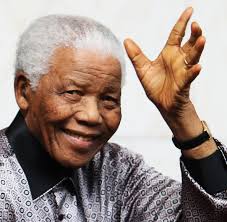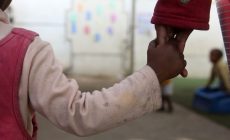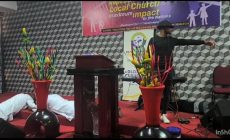South Africa emotionally accepts the possibility of Nelson Mandela passing
- Posted on
- Comment
 As anti-apartheid hero Nelson Mandela’s reportedly clings to life support, South Africans seem resigned to the global icon’s imminent passing. Reports of burial preparations, impending tribal rituals and other arrangements for the death of the former South African president indicate an apparent shift from hopeful to acceptance.
As anti-apartheid hero Nelson Mandela’s reportedly clings to life support, South Africans seem resigned to the global icon’s imminent passing. Reports of burial preparations, impending tribal rituals and other arrangements for the death of the former South African president indicate an apparent shift from hopeful to acceptance.
President Jacob Zuma canceled a trip to neighboring Mozambique scheduled for Thursday after visiting Mandela the prior evening, fueling rumors of the 94-year-old’s deteriorating condition. The president was briefed by the doctors who are “still doing everything they can to ensure Madiba’s well-being,” read a statement from the president’s office.
In a symbolic gesture of freedom and release, doves were released outside of Mandela’s Pretoria hospital on Tuesday. “It is a symbol to say ‘Tata [father] we are with you, we are praying for you,'” Thomas Cotts, who released the birds, told BBC.
A hospital visit from South African Archbishop Thabo Makgoba later that day confirmed this gradual resignation. Makgoba joined Mandela’s wife Graça and other family members to pray for the ailing former leader, who ushered in a new, post-apartheid era of reconciliation and revolution.
“May your arms of love, stretched wide on the cross for us, now enfold Madiba, and Graça, with compassion, comfort and the conviction that you will never forsake them but that you will grant Madiba eternal healing and relief from pain and suffering,” prayed the Archbishop, as posted on his Facebook page.
“And may your blessing rest upon Madiba now and always. Grant him, we pray, a quiet night and a peaceful, perfect, end.”
Varying updates and speculations have circulated for the duration of Mandela’s 19-day hospitalization, so this merging of viewpoints endorses what many initially refused to accept: the end of a remarkable life, one which served as a nation’s beacon of hope, is approaching fast.
An emotional flood of handmade messages, flowers and gifts pooling outside of the hospital and Mandela’s home also reflected this change. The small, painted hand prints and colorful writing on the many posters and drawings demonstrated the far-reaching influence that Mandela, also known as “Father of the Nation,” had on South Africans of all ages.
“We came because we care about Mandela being sick, and we wish we could put a stop to it, like snap our fingers,” Matthew Rusznyah, 9, told AP. “But we can’t. It’s how life works.”
BET










 (Selorm) |
(Selorm) |  (Nana Kwesi)
(Nana Kwesi)